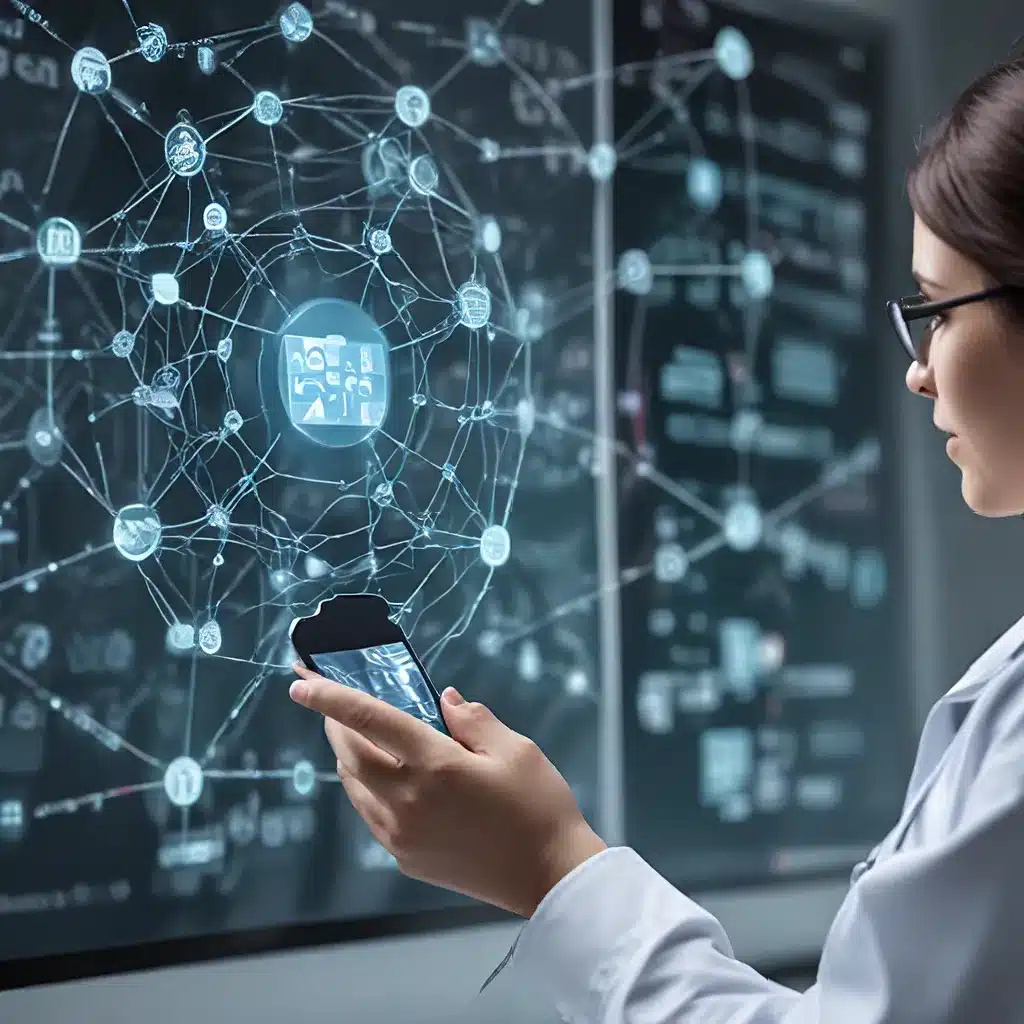
Revolutionizing Healthcare Delivery with Sensor Networks
Sensor networks have emerged as a transformative force in the healthcare industry, empowering clinicians and patients alike to monitor and manage health more effectively. These interconnected systems of sensors, gateways, and data processing platforms are paving the way for precision healthcare, where personalized, data-driven approaches can optimize patient outcomes.
By continuously collecting real-time data from various physiological parameters, sensor networks are enabling healthcare providers to gain a deeper understanding of their patients’ health status. From monitoring vital signs and tracking medication adherence to detecting early signs of chronic conditions, these networks are revolutionizing the way healthcare is delivered.
One of the key advantages of sensor networks in healthcare is their ability to provide timely and actionable insights. Advancements in sensor technology have resulted in miniaturized, non-invasive devices that can seamlessly integrate into patients’ daily lives. This unobtrusive monitoring allows for the early detection of issues, prompting healthcare professionals to intervene before conditions worsen, ultimately improving patient outcomes and reducing the burden on the healthcare system.
Designing Reliable and Secure Sensor Networks
Constructing robust and reliable sensor networks for healthcare applications is a critical challenge. These systems must be resilient to disruptions, resistant to cyber threats, and capable of maintaining data integrity and patient privacy. Innovative network topologies and advanced security protocols are essential to ensure the seamless and secure operation of these mission-critical systems.
One of the key considerations in sensor network design is energy management. Sensors and gateways deployed in healthcare settings must be energy-efficient to minimize maintenance and ensure continuous monitoring. Techniques such as energy harvesting, low-power communication protocols, and intelligent power management are being explored to address this challenge.
Secure data transmission and end-to-end encryption are also critical components of sensor network design for healthcare. Robust authentication mechanisms, access control policies, and data anonymization strategies are essential to protect patient privacy and comply with regulatory requirements.
Unlocking the Potential of Sensor Networks in Healthcare
As sensor networks continue to evolve, they are unlocking unprecedented opportunities to transform healthcare delivery. Real-time data from these networks can be integrated with advanced analytics and artificial intelligence to generate personalized insights and predict health events before they occur.
One promising application of sensor networks in healthcare is remote patient monitoring. By equipping patients with wearable devices and in-home sensors, healthcare providers can continuously monitor their condition and intervene proactively. This decentralized care model empowers patients to manage their own health while reducing the need for frequent hospital visits, ultimately improving patient satisfaction and reducing healthcare costs.
Another transformative application of sensor networks is disease prevention and early intervention. By continuously tracking physiological data, these networks can identify patterns and anomalies that may indicate the onset of chronic conditions or the risk of acute events. This proactive approach to healthcare enables clinicians to tailor interventions and modify treatment plans to optimize patient outcomes.
Navigating the Future of Sensor Networks in Healthcare
As the adoption of sensor networks in healthcare continues to grow, it is essential to address the emerging challenges and navigate the evolving landscape of this dynamic field. Interoperability between diverse sensor platforms, data integration across healthcare systems, and the ethical use of patient data are just a few of the critical considerations that must be addressed.
Collaboration among healthcare providers, technology companies, and regulatory bodies is crucial to unlock the full potential of sensor networks in healthcare. By fostering interdisciplinary partnerships and encouraging innovation, the industry can drive the development of cutting-edge sensor technologies and data-driven solutions that truly transform patient care.
The future of healthcare is undoubtedly connected, with sensor networks playing a pivotal role in enhancing patient experiences, improving clinical outcomes, and optimizing the efficiency of the entire healthcare ecosystem. As we embrace this transformative technology, we are poised to witness a new era of precision healthcare that empowers patients, empowers clinicians, and paves the way for a healthier tomorrow.